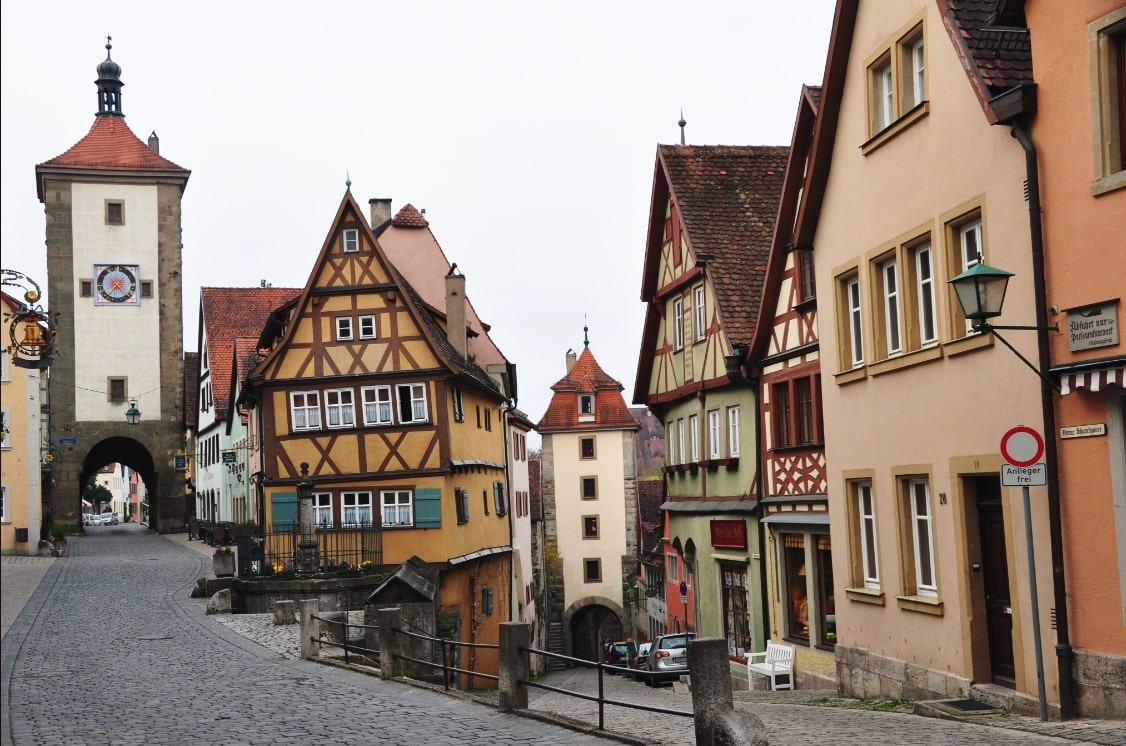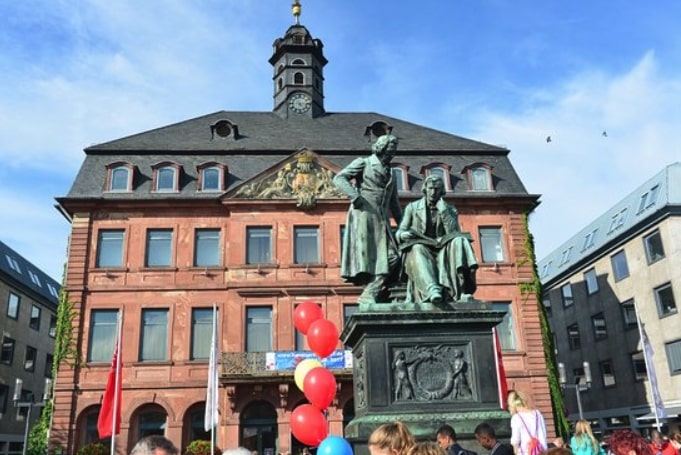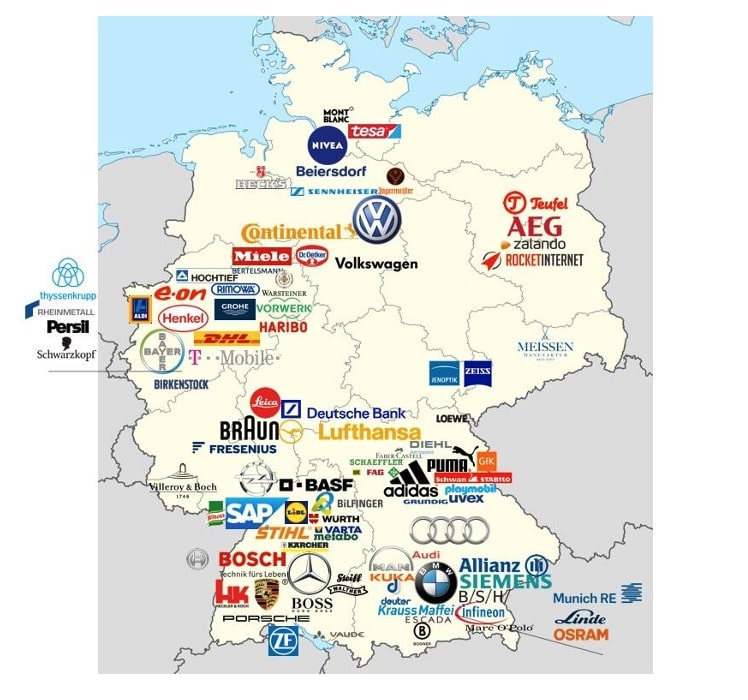German
German
Willkommen!

The Department of World Languages at Rowan University has a rich program in German. We offer language courses (from Elementary to Advanced). Students will learn about German culture, history, literature, cinema and other significant elements of this highly interesting civilization. We offer a Minor in German Studies (18 credits), which builds competence in both German language and culture; a CUGS in German (12 credits), which focuses primarily on the German language; and a Concentration in German within the Major in Modern Languages and Linguistics. All instructors have lived in Germany for an extended period of time and they all bring to the class a high level of competence in the language as well as much information on German culture and current issues.
 German is the most widely spoken language in Europe. It is the official language of Germany, Austria, and Lichtenstein, and it is also the native language of a significant portion of the population in northern Italy, eastern Belgium, the Netherlands, Denmark, eastern France, parts of Poland, the Czech Republic, Russia, and Romania. In short, learning German can connect you to over 150 million speakers around the globe! And because German belongs to the West Germanic group of the Indo-European language family and is closely connected to English. That means that an English speaker will have advantages when it comes to learning German, especially since many words sound the same in both languages.
German is the most widely spoken language in Europe. It is the official language of Germany, Austria, and Lichtenstein, and it is also the native language of a significant portion of the population in northern Italy, eastern Belgium, the Netherlands, Denmark, eastern France, parts of Poland, the Czech Republic, Russia, and Romania. In short, learning German can connect you to over 150 million speakers around the globe! And because German belongs to the West Germanic group of the Indo-European language family and is closely connected to English. That means that an English speaker will have advantages when it comes to learning German, especially since many words sound the same in both languages.

Germany is often referred to as the land of "Dichter und Denker" (poets and thinkers) and contributions to the humanities of German-speaking writers have been nothing short of profound. Johann Wolfgang von Goethe, the Grimm Brothers (left), Thomas Mann, Franz Kafka, and Hermann Hesse are just a few authors whose works are internationally known. Classical music is inseparable from the names of Mozart, Bach, Beethoven and Wagner. The philosophies of Kant, Hegel, Marx and Nietzsche have had a lasting influence on modern thought. And the psychologists Freud and Jung have forever changed the way we think about human behavior.

The German-speaking lands are rich in history. The first recorded contact with Germanic peoples was by the ancient Romans. In the year 9 AD, Germanic tribes united to defeat invading Roman legions in the pivotal “Battle of the Teutoburg Forest,” and this victory thereafter created a space for German civilization and culture to develop. Over the next 2,000 years, the great period of migration took place (the "Völkerwanderungszeit" brought the "Angles" and the "Saxons" to Britain), the Middle Ages, the Reformation, the 18th-century Enlightenment, 19th-century Romanticism, German unification with the 1870-71 Franco-Prussian War, the rise of 20th-century fascism, the calamity of two world wars, the division of German, and eventual reunification.

Looking for better opportunities, or facing civil unrest and religious persecution, large waves of German immigrants entered the United States over a period spanning nearly four centuries. The Pennsylvania Dutch (or "Deutsch," meaning "German") are an example of such immigration. German speakers also brought with them many customs and traditions that have become so ingrained in American ways that their origins are often forgotten (Santa Claus and the Christmas Tree are examples). Family names as well as the names of thousands of towns and cities indicate the German heritage of these early immigrants. And German-American festivals still abound in localities throughout the United States.
In today's globalized economy, more and more companies are doing business internationally. As a result, there is an increasing demand for employees who are able to communicate in several languages. And German is one of the most commonly used languages in business, and knowing it can give you great advantages. Business opportunities with German companies exist both in the United States and throughout the European Union. Internationally recognized German companies include Volkswagen, Mercedes-Benz, BMW, Daimler, Siemens, Lufthansa, Bosch and Birkenstock. Indeed, German companies such as these account for hundreds of thousands of jobs in the United States, and US companies have created approximately the same number of jobs in Germany.

Rowan University offers an array of study abroad programs in German-speaking countries. Study abroad is academically challenging, culturally transformative, and professionally relevant. The best way to boost your language proficiency and increase your knowledge of international affairs is to live and study in another country. All credits earned through study abroad fulfill Rowan program requirements, and scholarships are available.
If you have questions about such opportunities, feel free to contact the Coordinator of German, Dr. Edward Smith at smithe@rowan.edu, or the Department Chair, Dr. Marilyn S. Manley at manley@rowan.edu.





